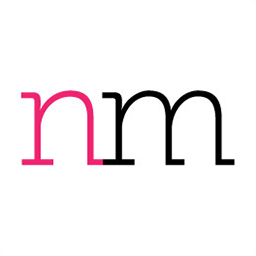Brustroke Kaiseki, Chef's Pass at Bouley
Two nights ago, I had the chance to visit Brushstroke, the very Japanese Tribeca kaiseki restaurant from chef David Bouley, in collaboration with the Tsuji Cooking Academy in Osaka, Japan. The joint effort goes back 18 years, when Bouley first met Tsuji presidentYoshiki Tsuji, whose father founded the school and authored the seminal Japanese cookbook Japanese Cooking: A Simple Art. In order to bring the spirit of Japanese cuisine to New York, professors from the academy, kitchen equipment, ingredients and ideas have wended their way from Japan to Tribeca, making Brushstroke possibly the most authentic Japanese dining experience you can have in New York City at the moment.
Bouley says the collaboration is an extension of the way he’s always thought about cooking. The Japanese like him, he noted, because he’s a farmer at heart and he’s been doing seasonally driven kaiseki-style dinners since 1985, when he served 12- and 15-course small plate dinners on custom-made Limoges china.
The Brushstroke space (formerly Danube), designed by the Japanese firm Super Potato and its lead designer Takashi Sugimoto, is a honeyed, mellow space, one wall of which is composed of the page-ends of 2,500 books stacked in criss-cross patterns and tinted to mimic the natural striations of wood. Chef Isao Yamada and mixologist Gen Yamamoto are creating exciting dishes and drinks that feel cutting edge modern but with the fanatic attention to detail and technique of the best Japanese restaurants. Among the dishes we sampled: “stinky” and creamy fermented tofu; truffled chawan-mushi (savory egg custard) with sea urchin; lobster claw tempura with two kinds of salt, curry and green tea, and a selection of pristinely fresh sushi.
The clean, clear flavors extend to Brushstroke's cocktail menu as well, where heirloom tomatoes, grapefruit, ginger and green peas have all found their way into Yamamoto’s inspired cocktails. My grape tomato concoction was a beautiful shade of pink-red, subtle and delicious.
 |
| Chef's Pass, photo by Nicole Bartelme |
Back at Bouley, I got a peek at a room called the “Chef’s Pass.” In the process of expanding his kitchen space, the chef created a wondrous, salon-like room decorated with the kinds of gorgeous antique, artisanal and one-of-a-kind finds that he seems to amass in his sleep (he and chef Jody Williams are alike that way). The novelty is the 65-inch flat screen TV, where private dining groups can partake of their dinner while conversing, via Skype, with the purveyors who supply Bouley: master saké brewers in Japan, vintners and cheese makers in France and farmers in the Catskills or the Berkshires. Tours cheese maker Rodolphe Le Meunier, Meilleur Ouvrier de France (the highest honor awarded artisans in France), is such a good sport he’ll get up at 4 a.m. to chat with Bouley diners and explain his methods.
Chef's Pass allows Bouley to educate his patrons while feeding them in style, to introduce the hard-working farmers and craftspeople who make his kind of restaurant possible. Yet the chef takes a jaundiced view of the current “farm-to-table” movement, saying, “it’s what farmers have been doing for ten generations where I grew up in New England." While this "reinvention" of age old practices is nothing new, "it's a good thing," he adds, because it brings home the message that "people should not underestimate the value of the farmer."


